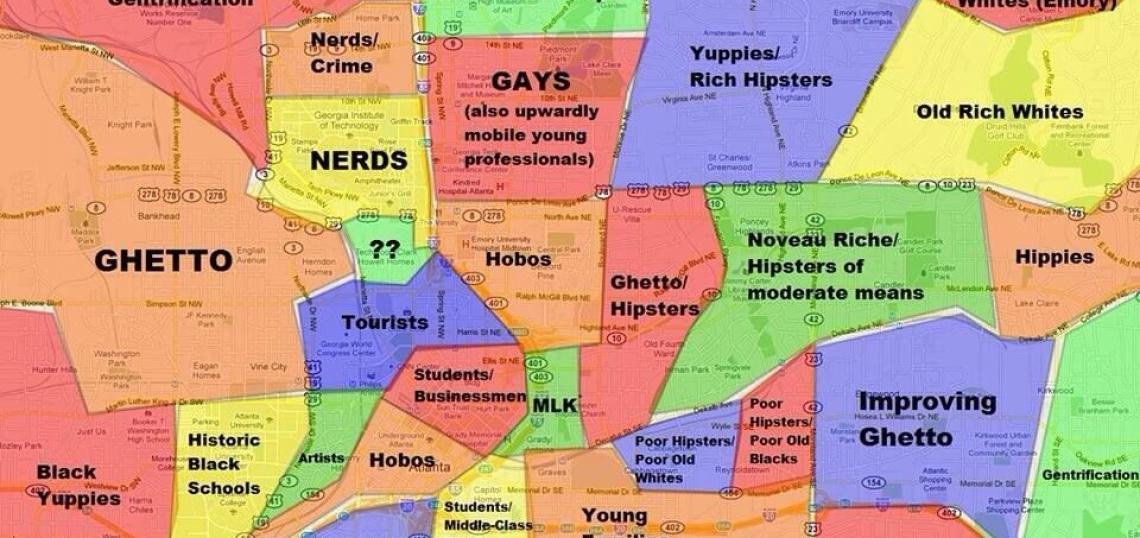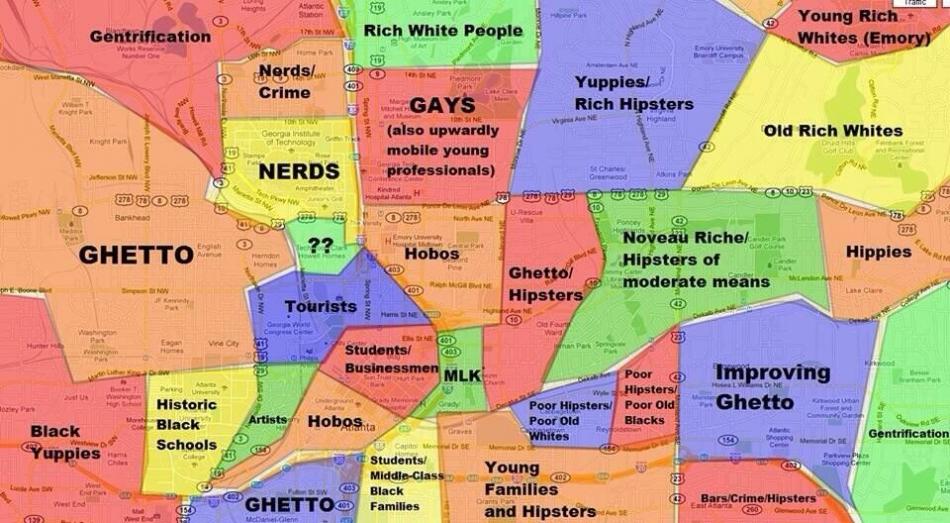“Who’s ready to be offended? Everyone? OK, perfect.”
So began a dispatch on another Atlanta-based website that covered real estate and urbanization trends seven years ago. The inspiration for the story was not created in-house but was instead stumbled upon online. It was the Atlanta Map that Offended Pretty Much Everyone.
Quick backstory: A reporter who’s now doing bang-up investigative work for the Atlanta Journal-Constitution found the map while researching something else for the aforementioned website. The map's source, he relayed, was “some anonymous curmudgeon on Reddit.”
An editorial decision was made that the ridiculous map was “worth a chuckle,” possibly a cure for readers’ hump-day lulls, and a jokey write-up about it went live on a Wednesday. We ran the disclaimer that “tried-and-true Atlantans of all sorts may, for one reason or another, come away a little hot under the collar,” warned that most descriptions were “cringe-worthy,” and requested that the creator come forward with their “empirical data.”
What happened next? The city pretty much bonded in collective revulsion. While having a self-deprecating laugh.
The map was so infamous, it spawned copycat, equally vile cartography in cities across the country. But why did it strike such a chord? Did it hold up a mirror to what we really perceive our cities as being but are too afraid to say? Did it lay bare the worst parts of what we generally think, as a society? Or were such bold, appalling generalizations just kind of amusing?
We only bring this up to illustrate how quickly Atlanta—like perceptions of the city—is changing. Call it evolution or regression, but seven years here is comparable to a generation—if not generations—in more stagnant places, as Summerhill can attest.
Labeling south Midtown as a district of “Hobos,” surely a reference to the long-shuttered Peachtree-Pine shelter, seems archaic now. Ditto for “Hippies” in Decatur and "Hipsters of moderate means" in Poncey-Highland and Candler Park. Is “Crime” still a defining characteristic of East Atlanta, if it ever was?
Does “Improving Ghetto” apply to Kirkwood, where homes are routinely selling for north of $1 million, or “Gentrification” to Atlantic Station, today? (The one truth nugget could be “NERDS” for the Georgia Tech area; the harsh all-caps hints that a vindictive UGA graduate could be the map’s originator.)
Of course, most of these descriptions remain cringe-worthy—and probably to a greater degree today. But it is food for thought. Even when you don’t like the taste.
...
Follow us on social media:
Twitter / Facebook/and now: Instagram
• And now, the best of recent Atlanta reviews in general (Urbanize Atlanta)







